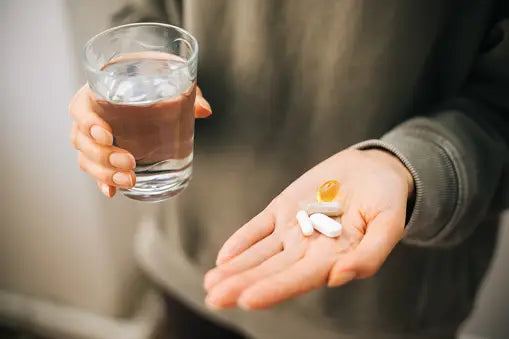

Caffeine Better in the Morning or Afternoon?
Table of Contents
Caffeine Better in the Morning or Afternoon?
Caffeine has long been part of the pre-workout regimen for all gym advocates and professional athletes. Caffeine is well-known as a central nervous system stimulant. Studies have shown that caffeine can help an athlete perform better in a variety of different activities. It has been shown to be a powerful ergogenic aid that is beneficial in athletic performance and training. Caffeine has been shown to increase speed and power output, improve the length an athlete can train, and assist the athlete in resisting fatigue. Caffeine reduces fatigue and increases concentration and alertness, and athletes regularly use it as an ergogenic aid.
Trained athletes seem to benefit from a moderate dose of 5 mg/kg, however, even lower doses of caffeine (1.0–2.0 mg/kg) may improve performance. Some researchers have found significantly improved time trial performance or maximal cycling power from caffeine use. A new study recently found that if you want to get the most out of your caffeine, take it in the morning.
 To determine whether the ergogenic effects of caffeine ingestion on neuromuscular performance are similar when ingestion takes place in the morning and in the afternoon. Thirteen resistance-trained males carried out bench press and full squat exercises against four incremental loads (25%, 50%, 75% and 90% 1RM), at maximal velocity. Trials took place 60 min after ingesting either 6 mg kg−1 of caffeine or placebo. Two trials took place in the morning and two in the afternoon, all separated by 36–48 h. At the end of the study, plasma caffeine increased similarly during AM and PM workouts. Despite similar blood caffeine levels during both trials only the morning sessions produced an increase in muscle power output in the squat. Additionally, The negative side effects of caffeine were more prevalent in the afternoon trials (13 vs. 26%). The ingestion of a moderate dose of caffeine counteracts the muscle contraction velocity declines observed in the morning against a wide range of loads. Caffeine effects are more evident in the lower body musculature. Evening caffeine ingestion not only has little effect on neuromuscular performance, but increases the rate of negative side-effects reported.To sum up the study, caffeine resulted in greater muscle performance in the squat taken in the morning and also resulted in less side effects than taken in the afternoon. To determine whether the ergogenic effects of caffeine ingestion on neuromuscular performance are similar when ingestion takes place in the morning and in the afternoon. Thirteen resistance-trained males carried out bench press and full squat exercises against four incremental loads (25%, 50%, 75% and 90% 1RM), at maximal velocity. Trials took place 60 min after ingesting either 6 mg kg−1 of caffeine or placebo. Two trials took place in the morning and two in the afternoon, all separated by 36–48 h. At the end of the study, plasma caffeine increased similarly during AM and PM workouts. Despite similar blood caffeine levels during both trials only the morning sessions produced an increase in muscle power output in the squat. Additionally, The negative side effects of caffeine were more prevalent in the afternoon trials (13 vs. 26%). The ingestion of a moderate dose of caffeine counteracts the muscle contraction velocity declines observed in the morning against a wide range of loads. Caffeine effects are more evident in the lower body musculature. Evening caffeine ingestion not only has little effect on neuromuscular performance, but increases the rate of negative side-effects reported.To sum up the study, caffeine resulted in greater muscle performance in the squat taken in the morning and also resulted in less side effects than taken in the afternoon. |
Mora Rodriguez, R, Pallarés, JG, López Samanes, Á, Fernández, Elias, VE, Ortega, JF. Improvements on neuromuscular performance with caffeine ingestion depend on the time of day. Journal of Science and Medicine in Sport. Volume 18, Issue 3, May 2015, Pages 338–342
Cox GR, Desbrow B, Montgomery PG, Anderson ME, Bruce CR, Macrides TA, Martin DT, Moquin A, Roberts A, Hawley JA, Burke LM: Effect of different protocols of caffeine intake on metabolism and endurance performance. J Appl Physiol 2002, 93:990-999.
Mc Naughton LR, Lovell RJ, Siegler JC, Midgley AW, Sandstrom M, Bentley DJ: The effects of caffeine ingestion on time trial cycling performance. J Sports Med Phys Fitness 2008, 48:320-325.
Del Coso J, Estevez E, Mora-Rodriguez R: Caffeine effects on short-term performance during prolonged exercise in the heat. Med Sci Sports Exerc 2008, 40:744-751.

















